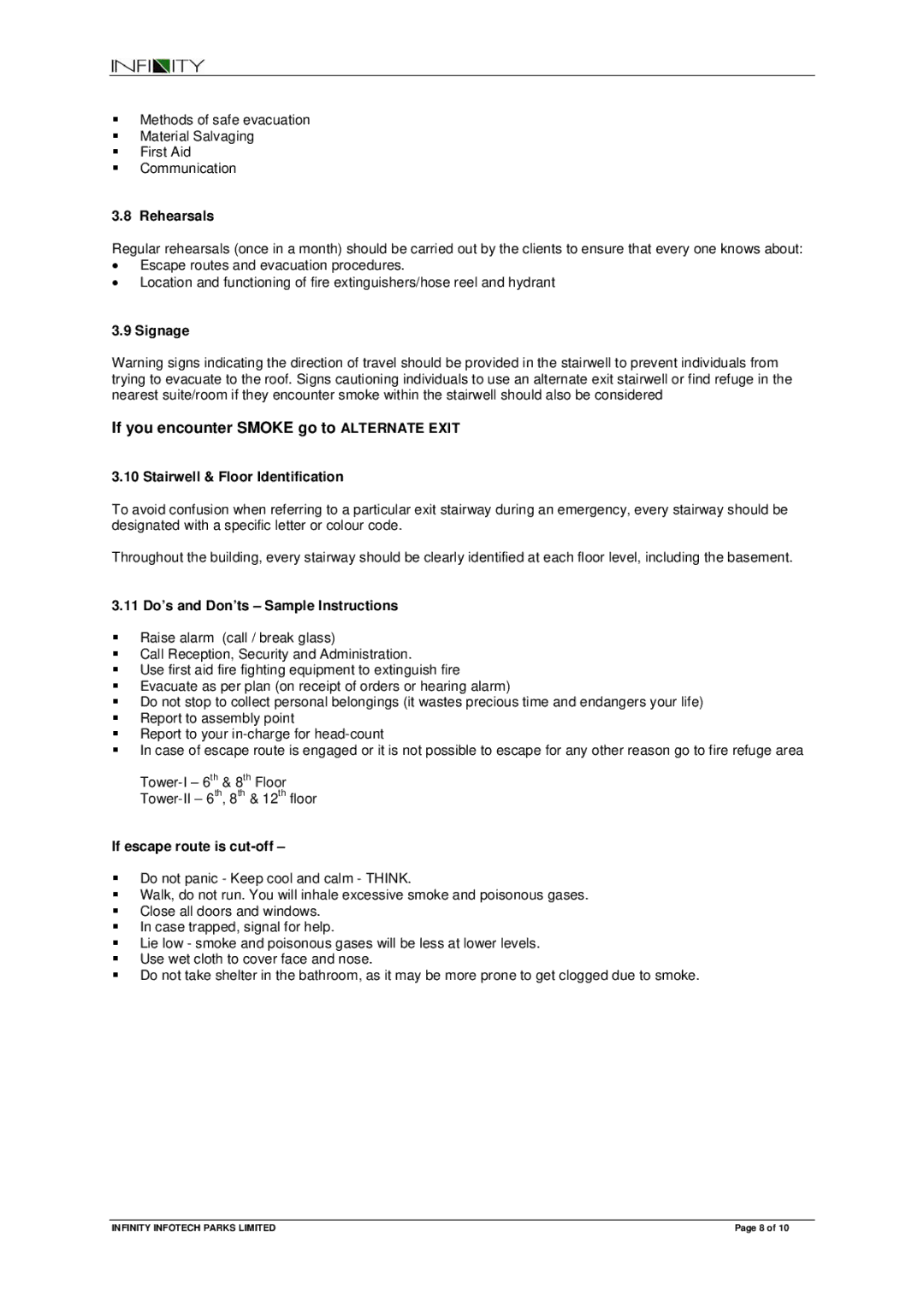
Methods of safe evacuation
Material Salvaging
First Aid
Communication
3.8 Rehearsals
Regular rehearsals (once in a month) should be carried out by the clients to ensure that every one knows about:
•Escape routes and evacuation procedures.
•Location and functioning of fire extinguishers/hose reel and hydrant
3.9 Signage
Warning signs indicating the direction of travel should be provided in the stairwell to prevent individuals from trying to evacuate to the roof. Signs cautioning individuals to use an alternate exit stairwell or find refuge in the nearest suite/room if they encounter smoke within the stairwell should also be considered
If you encounter SMOKE go to ALTERNATE EXIT
3.10 Stairwell & Floor Identification
To avoid confusion when referring to a particular exit stairway during an emergency, every stairway should be designated with a specific letter or colour code.
Throughout the building, every stairway should be clearly identified at each floor level, including the basement.
3.11 Do’s and Don’ts – Sample Instructions
Raise alarm (call / break glass)
Call Reception, Security and Administration.
Use first aid fire fighting equipment to extinguish fire
Evacuate as per plan (on receipt of orders or hearing alarm)
Do not stop to collect personal belongings (it wastes precious time and endangers your life)
Report to assembly point
Report to your
In case of escape route is engaged or it is not possible to escape for any other reason go to fire refuge area
If escape route is cut-off –
Do not panic - Keep cool and calm - THINK.
Walk, do not run. You will inhale excessive smoke and poisonous gases.
Close all doors and windows.
In case trapped, signal for help.
Lie low - smoke and poisonous gases will be less at lower levels.
Use wet cloth to cover face and nose.
Do not take shelter in the bathroom, as it may be more prone to get clogged due to smoke.
INFINITY INFOTECH PARKS LIMITED | Page 8 of 10 |
